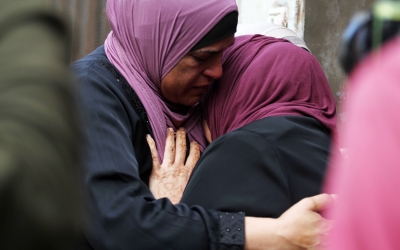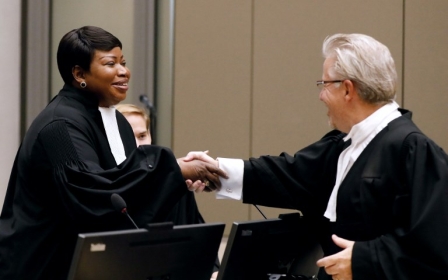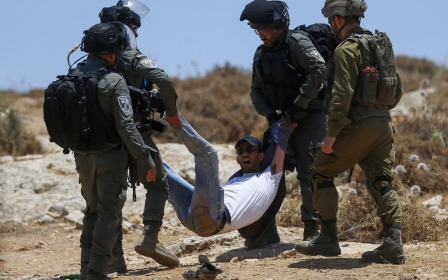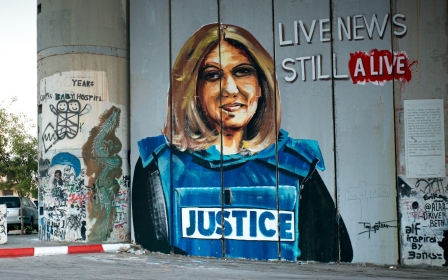'A breakthrough': UN committee votes to request ICJ opinion on Israeli occupation

The United Nations' decolonisation committee adopted a draft Palestinian resolution on Friday requesting an advisory opinion from the International Court of Justice (ICJ) on Israel's occupation of Palestinian lands since 1967.
The measure was welcomed by Palestinians and rejected by Israel.
Palestinian Foreign Minister Riyad al-Maliki said in a statement that 98 countries supported the resolution, 52 abstained and 17 voted against.
The opinions of the ICJ, which settles disputes between countries, are binding but the court has no power to enforce them.
Al-Maliki welcomed the vote and described the resolution as a "diplomatic and legal breakthrough" that would "open a new era for holding Israel accountable for its war crimes".
The resolution will now go to the 193-member General Assembly for a final vote before the end of the year.
The resolution, approved at the UN headquarters in New York, asks the ICJ to "urgently" weigh in on Israel's "prolonged occupation, settlement and annexation of the Palestinian territory", which it said violated the Palestinians' right to self-determination. The resolution referred to Palestinian lands occupied by Israel since the 1967 war: the West Bank, Gaza and East Jerusalem.
It also referred to policies aimed at "altering the demographic composition, character and status of the holy city of Jerusalem". The resolution asks the court for an opinion on how these Israeli policies and practices "affect the legal status of the occupation, and what are the legal consequences that arise for all states and the United Nations from this status".
The ICJ in 2004 judged that a wall Israel had built, mainly inside the occupied West Bank and East Jerusalem, was "contrary to international law".
'This occupation will need to end'
After the vote, the Palestinian UN ambassador, Riyad Mansour, cited Palestinian President Mahmoud Abbas' speech at the annual General Assembly meeting in September that urged for the mobilising of "all the components of our international law-based order, including international justice".
Mansour thanked the countries that supported the resolution and said that "nothing justifies standing with Israeli occupation and annexation, its displacement and dispossession of our people".
"Our people are entitled to freedom," he said. "This occupation will need to end."
"There will come a day, a day when our people will bring the flag of Palestine over the churches of Jerusalem and to the mosques of Jerusalem and Haram al-Sharif," Mansour added.
Meanwhile, Israel's UN Ambassador Gilad Erdan opposed the vote, saying that by calling to involve the ICJ, "the Palestinians are decimating any chances of reconciliation".
"The Palestinians have rejected every single peace initiative, and now they embroil an external body with the excuse that the conflict has not been resolved?" he said, addressing the forum.
At the committee's meeting on Thursday, the US deputy representative to the United States, which voted against the resolution, said that an ICJ advisory opinion is "counterproductive and will only take the parties further away from the objective we all share of a negotiated two-state solution".
Middle East Eye delivers independent and unrivalled coverage and analysis of the Middle East, North Africa and beyond. To learn more about republishing this content and the associated fees, please fill out this form. More about MEE can be found here.





